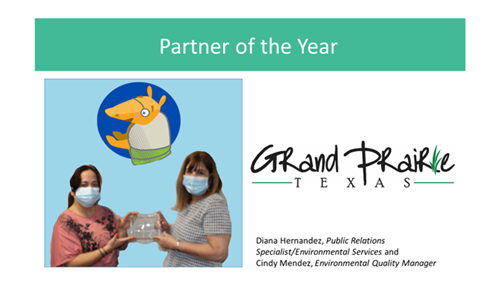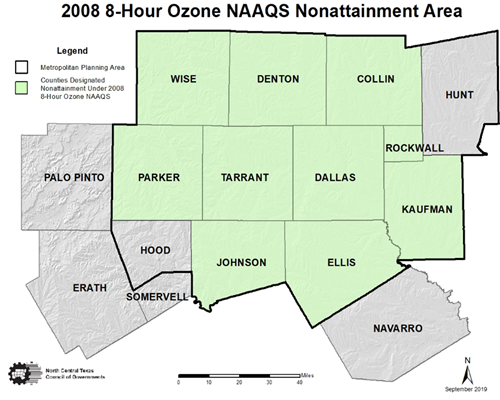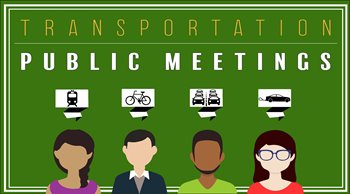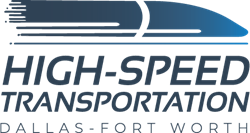Local Motion - January 2021
Grand Prairie named top air quality partner
The COVID-19 pandemic has resulted in many changes to how North Texans have sought to improve air quality, but it has not changed the resolve of many to work toward cleaner air. NCTCOG recognized five cities for their commitment to this essential effort through the annual Air North Texas Partner Awards at the December 10 Regional Transportation Council meeting.
The City of Grand Prairie was awarded the Air North Texas Partner of the Year, for the fifth year in a row. Amidst the challenging COVID-19 pandemic, the city employed informative and engaging use of social media and advertising. Providing residents with a wide-ranging approach to social distancing strategies while promoting clean air strategies.
The City of Dallas received the award for outstanding outreach. Its use of inventive digital strategies helped engage residents and businesses. The city hosted its first virtual Clean Air Action Day celebration via WebEx, due to the pandemic. Topics included regional and local air monitoring, electric vehicles, and transportation in a post-COVID world.
The City of Garland received the award for outstanding initiative. Garland created a dedicated air quality page on its website that includes air quality facts, links to Air North Texas, and a list of clean air actions residents can take. The City of Plano received the award for outstanding advertising. Plano used a multi-tiered approach to release information that encouraged residents to take the Clean Air Action Day pledge and provided strategies to help reduce air pollution associated with vehicle travel. Finally, the City of Denton received the Arlo Ambassador Award for the second year. The city advanced the Air North Texas message through the campaign mascot, Arlo the Armadillo.
DFW moves closer to compliance with air quality standards
Ozone season concluded November 30, with Dallas-Fort Worth (DFW) having made progress in its effort to comply with the Environmental Protection Agency’s standards by improving regional air quality. But the region’s design value of 76 parts per billion (ppb) fell short of the 2008 standard of 75 ppb and, therefore, also missed the 2015 standard of 70 ppb.
 As the region has tentatively failed attainment for ozone, DFW will likely be reclassified under both standards, resulting in more requirements, as well as additional time to reach attainment.
As the region has tentatively failed attainment for ozone, DFW will likely be reclassified under both standards, resulting in more requirements, as well as additional time to reach attainment.
DFW is expected to be bumped to severe under the 2008 standard, and moderate under the 2015 standard. The region would be given until 2027 to meet the 2008 standard and 2024 comply with the 2015 standard.
Because North Texas is in nonattainment for ozone pollution, transportation system improvements must be made without negatively impacting air quality. The region has made significant progress over the past two decades, seeing its design value improve from 102 ppb in 1998 to 76 ppb in 2020.
NCTCOG works closely with regional partners to create tactics, policies, and programs to enhance regional air quality to establish a healthier community and to reach attainment. Community involvement is available via participation through regional air quality campaigns such as Air North Texas.
Air North Texas is a public awareness campaign encouraging individuals, businesses, and governments to make small changes to their routines to help reduce harmful pollutants from being emitted. For more information on NCTCOG’s efforts through Air North Texas, visit www.airnorthtexas.org.
COVID-19 has resulted in changes to the lives of North Texans, but the pandemic also raised questions related to transportation. Though fewer cars occupied the roads as work shifted from office buildings to homes beginning in March, and as stay-at-home orders were enacted, there were some unexpected emission increases in May, June, and August.
Planners will examine why a greater improvement in air quality was not seen, despite the change in commuting patterns. They will also study the impacts of background ozone emissions and the potential that other states’ and regions’ activity is having more of an effect on DFW’s air quality than originally thought. For an updated look at how the pandemic is affecting air quality and transportation, visit the Changing Mobility dashboard at www.nctcog.org/pm/covid-19.
Peak hour lane added to relieve SH 121 congestion
The Texas Department of Transportation opened new peak hour lanes on northbound and southbound State Highway 121 from SH 183 to Glade Road in December.
The project reconstructed the inside shoulder to accommodate motorists and improve traffic flow during peak travel times.
The shoulder from Glade Road to Harwood Drive will be open to traffic during assigned operating hours, providing three lanes in both directions. The new lanes will be managed through dynamic message signs above the lane that will indicate when the inside shoulder is open for use.
When the lanes are not open for use, the inside shoulder will remain available for emergencies and disabled vehicles.
The peak hour lanes project is an effort to address traffic congestion on SH 121 that has grown substantially over the past decade, especially at peak travel times.
An interim step to a longer-term solution, the three-mile project will relieve main lane congestion and enhance safety and mobility in one of the most heavily traveled areas of North Texas. A similar approach was used to lessen congestion on SH 161 until permanent lanes could be constructed. — By TxDOT
Deadline to provide energy feedback Jan. 8
NCTCOG is requesting assistance from member governments to identify the region’s most significant energy management needs and prioritize the development of appropriate resources.
Local governments are asked to take a survey to provide their feedback on previous energy topics and workshops and identify energy management topics most important to their organizations.
The deadline to respond to the survey is January 8. The results will allow NCTCOG to continue helping entities with their energy goals and management needs.
The survey should take a few minutes to complete.
Virtual drone workshop scheduled for Jan. 9
NCTCOG’s next Know Before You Fly Your Drone workshop is scheduled for 10 a.m. Saturday, January 9.
With the COVID-19 pandemic continuing, this FREE session will again be virtual. It is open to both professionals and hobbyists and will cover the rules and regulations involved in piloting these popular aircraft. It will also include instruction on best practices and the best places to fly drones.
The upcoming workshops, which are expected to continue through 2022, will have a variety of focus topics. This session’s focus will be “How to Start a Drone Business.”
The use of drones by everyone from hobbyists to the public and private sectors has been growing for the past few years, a trend that is expected to continue. As the technology has improved and become cheaper, what had been primarily used by the military is now more common among governments and emergency response providers.
To fly a drone for anything other than recreation requires a license, which is among the topics scheduled to be discussed during the workshop.
For information and to register for the virtual workshop, visit www.northtexasuas.com.
Provide online input on transportation planning initiatives
Beginning January 11, North Texans are invited to comment online on changes to the 2021-2024 Transportation Improvement Program and Statewide Transportation
Improvement Program.
The changes were requested by the Texas Department of Transportation in order to remain within Statewide financial constraints prior to the State submission of the 2021-2024 TIP/STIP to the Federal Highway Administration. Requested changes not requiring RTC approval are also included for informational purposes.
The Regional Smoking Vehicle Program and vehicle incentive opportunities will also be highlighted during this online input opportunity.
Comments will be accepted through February 9 and can be made by visiting www.nctcog.org/input.
Study of high-speed options continues
The DFW High-Speed Transportation Connections Study is continuing with two opportunities in January for the public to comment.
NCTCOG has scheduled virtual public meetings for noon Wednesday, January 27, and 6 pm Thursday, January 28 to give residents an opportunity to learn more about the study and provide input to planners.
The study is evaluating high-speed transportation alternatives to modernize and enhance travel between Dallas, Arlington and Fort Worth. The effort outlines potential transportation choices to accommodate the expected population growth from 7.5 million today to more than 11 million by 2045.
Among the options are traditional high-speed rail, magnetic levitation trains and hyperloop. High-speed transportation would reduce congestion on DFW roadways and decrease travel time between Dallas and Fort Worth.
The technology selected will offer a connection to other planned high-speed transportation systems, eventually connecting other regions in Texas and beyond.
The public meeting presentation may be viewed at the following: nctcog.org/dfw-hstcs. Residents without access to the internet may call 855-756-7520 during the meetings to listen and weigh in. Those choosing the call-in option should use extension 70384# January 27 and extension 70385# January 28.
Comments and questions can be submitted before or after the public meeting by email at, hst_dfw@nctcog.org or online at nctcog.org/dfw-hstcs. Presentation materials will be posted for review one week in advance of the meetings at nctcog.org/dfw-hstcs. Comments received between January 22 and February 22 will be considered and included as part of the official public meeting record. Comments received after February 22 will be considered but will not be included in the official record.
Residents can also request printed copies of the information by calling 817-608-2365 or by email to Carli Baylor at cbaylor@nctcog.org.
Energy reporting deadline extended to Feb. 1
The deadline for entities in the Dallas-Fort Worth nonattainment area to report their energy-consumption progress has been extended to February 1. The reporting process is being modified to cover energy consumption on a calendar year basis rather than fiscal year.
All political subdivisions, State agencies and colleges and universities in an ozone nonattainment area or an affected county are required to establish a goal to reduce electricity consumption by at least 5% each year, according to the Texas Health and Safety Code.
Each political subdivision must submit a report annually to SECO regarding its progress and efforts to meet the 5% annual reduction goal. To assist local governments in achieving the 5% reduction goal and required reporting, NCTCOG developed a white paper to help resolve frequent challenges and highlight best practices. The “Texas’ Mandated Local Government Energy Reduction Goal: Challenges and Best Practices” white paper can be accessed from the Local Government Energy Reporting Toolkit on Conserve North Texas.
A webinar presenting this white paper and other key reporting tips will be provided on January 12, at 2 pm. For updates on the Local Government Energy Report and program, visit the SECO Local Government Energy Reporting webpage.
Imagery provided by NCTCOG and Getty Images.
